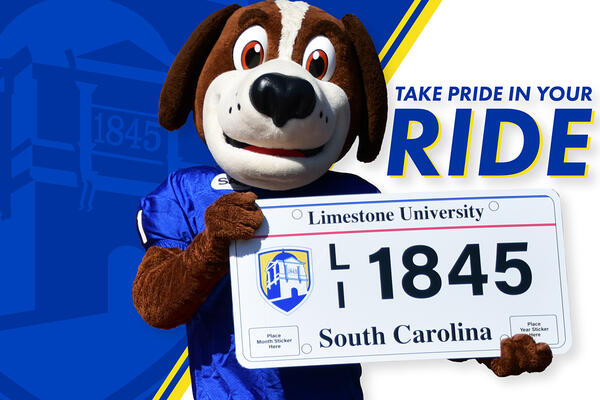February 9th, 2023
Should You Be a Marketing Major?

Behind every brand you use is a marketing team that strives to create a relationship with you, the consumer. With a lot of research and a little bit of creativity, they market their company’s products in such a way that you feel compelled to purchase them. Sounds interesting, doesn’t it? If you want to be the driving force behind a company’s brand, a career in marketing may be the right fit for you. As a marketing major, you learn to build connections between a brand and its audience. It can also introduce you to business concepts and project management.
Will You Be a Right Fit for a Marketing Career?
Marketing is a dynamic field that combines communication, advertising, branding, and sales. As a marketing professional, you dig through data to identify an audience, elevate your brand to appeal to it, and use communication and advertising strategies to engage and entice them to buy.
To succeed in the field, you need a broad skillset. From creative to technical, you need to be open to innovative thinking and passionate about what you sell. Here are some skills that will make you a good fit to the field and the major:
Communication
At the heart of your job is the ability to communicate how a product or service can meet the needs of your customers. You build creative briefs, draft copy, come up with ads, and write press releases. Your communication skills are also critical as you brainstorm ideas and pitch to internal stakeholders and clients. And since most all of your buyers will look for you online, you need knowledge of social media platforms and websites.
Teamwork and Collaboration
Marketing is a creative and collaborative field. Even if you take your calls on Zoom, you still need a meeting of the minds to devise and implement the strategies that are most likely to publicize your brand, connect with your audience, and sell your products. If you’ve ever played a team sport, you already know how critical teamwork is to any victory.
Critical Thinking
Think about your ideal buyer. Who are they? What do they need? And how can what your organization offers make life easier for them? With critical thinking skills, you can ponder these questions and come up with answers that serve as the cornerstones of a marketing campaign.
Creativity
To come up with campaigns that catch a consumer’s eye, you need to be innately creative. With out-of-the-box thinking, you can create interactive ads and unique branding that stands out from your competitors. Creativity can also come in handy when you need to adjust your messaging and retool campaigns that fall flat.
What Do You Learn as a Marketing Major?
Since marketing is a strong component of business, you need to understand some basics about how companies operate. This includes business policies, laws that pertain to transactions and sales, and communication in the workplace. Here are a few other subjects your program should cover:
Finance and Accounting
Marketing can have a direct impact on the financial health of an organization. If you market a product successfully, sales can increase substantially, putting your company in the black. These subjects teach you how to interpret financial statements and use them to make sound decisions for your business.
Consumer Behavior
You can’t market to consumers if you don’t know who they are or how they’re likely to act. In-depth understanding of consumers—including social, political, and economic factors—can determine how you market a product or service.
International Business
Even companies based in the U.S. often have an international footprint today. Learning from a global perspective can help you see how international business laws, trade agreements, foreign investments, and global economics might affect even your local business.
Jobs for Marketing Majors
But what could you do with that marketing degree? A marketing major can prepare for a variety of jobs in business and beyond. Whether you choose a company that sells products you love or a nonprofit with a mission you want to make your own, your marketing skills can make a difference in getting the message out.
A few examples of entry-level marketing jobs include:
Social Media Specialist
In this role, you create content for social media platforms that aligns with your brand and connects with your core audience. You engage followers with fun campaigns or informational videos—all with the goal of selling your organization’s products, services, or messaging.
Email Marketing Assistant
Email campaigns use creatively crafted messages to engage subscribers, create brand loyalty, and maybe even get consumers to make a purchase. As an email marketing assistant, you may be tasked with proofing emails, entering data into email software, or actually writing and designing some of those emails. You might include sales and coupons, a catalog of new products, or just important news and updates. What will you do to get someone to open, read, and click on your email?
Copywriter
If you enjoy writing and flexing your creative muscles, you might like a job in copywriting. This job allows you to write a variety of messages that establishes an organization’s brand. This could include the mission statement or vision, copy on the company website, messaging for ads, or the text on packaging. There’s writing required for every message, every day.
If you’re ready to kickstart your career in marketing, contact Limestone University today. We offer a Bachelor of Science in Business Administration-Marketing that can prepare you for work in marketing, public relations, sales, or advertising. Our program is also offered online for convenience and flexibility. Click the button to learn more.
Bachelor of Science (B.S.)
The Bachelor's in Business Administration with a Marketing concentration curriculum provides the student with an understanding of the scope and nature of marketing; the marketing function within a business organization; environmental factors influencing marketing opportunities; the managerial tools necessary to plan and control the marketing process; and more.



